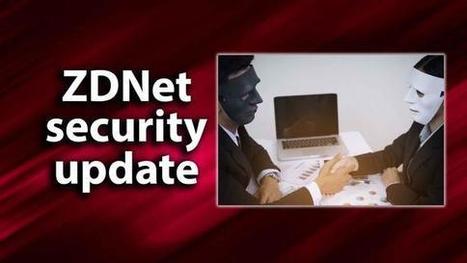A novel Bluetooth relay attack can let cybercriminals more easily than ever remotely unlock and operate cars, break open residential smart locks, and breach secure areas.
The vulnerability has to do with weaknesses in the current implementation of Bluetooth Low Energy (BLE), a wireless technology used for authenticating Bluetooth devices that are physically located within a close range.
"An attacker can falsely indicate the proximity of Bluetooth LE (BLE) devices to one another through the use of a relay attack," U.K.-based cybersecurity company NCC Group said. "This may enable unauthorized access to devices in BLE-based proximity authentication systems.
Learn more / En savoir plus / Mehr erfahren:
https://www.scoop.it/t/securite-pc-et-internet/?&tag=Bluetooth
https://www.scoop.it/topic/securite-pc-et-internet/?&tag=BLURtooth
Via
Gust MEES



 Your new post is loading...
Your new post is loading...











Researchers from the University of California San Diego in a new paper have demonstrated how Bluetooth signals can be used to identify and track smartphones.
Learn more / En savoir plus / Mehr erfahren:
https://www.scoop.it/t/securite-pc-et-internet/?&tag=Bluetooth
https://www.scoop.it/topic/securite-pc-et-internet/?&tag=BLURtooth